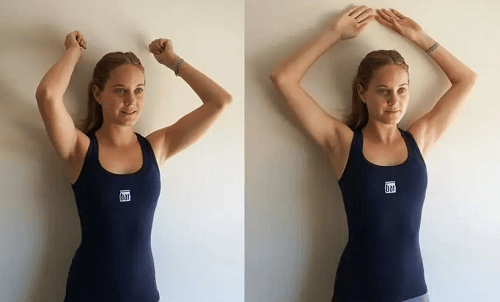Can I eat supper while losing weight?
This depends on the specific situation. If you have a normal and regular diet during the day, eating supper at this time will undoubtedly add obstacles to the weight loss journey. Avoid eating within 3 – 4 hours before bedtime.
However, if you are busy all day and have no time to focus on diet, consuming supper in this situation, as long as the total daily calorie intake is not excessive, not only will it not cause weight gain, but it may even continue to promote weight loss.
After successful weight loss, the skin becomes loose,
Does this mean that what was mainly lost was water weight?
To give a visual analogy, it’s like blowing up a balloon and then releasing most of the air, the balloon will become wrinkled and saggy.
During weight loss, skin often shows signs of sagging, and the greater the weight loss, the more pronounced this condition may be.
For example, if the abdomen originally had 20 pounds of excess fat, this would stretch the skin significantly. When the 20 pounds of excess fat disappear after successful weight loss, the abdomen will naturally have extra space. Generally, the more fat you lose, the more severe the skin sagging may be.
If the skin becomes loose after weight loss, it is recommended to engage in some anaerobic exercises, as this can help the skin gradually regain firmness.
I drank a lot of water during weight loss,
Why does the body fat analyzer still show insufficient water content?
The main reason is that you are still in an overweight state.
Generally, the higher the fat percentage, the lower the muscle percentage. Since muscles are mainly composed of protein and water, the lower the muscle percentage, the lower the water percentage in the body.
If your fat percentage is high and your muscle percentage is not at the standard level, the body fat analyzer is likely to show insufficient water content.
As you gradually succeed in losing weight, bringing your body fat percentage to a normal level and achieving a standard muscle percentage, your water content is usually displayed as normal.
Why is protein indispensable in healthy weight loss?
Whether it’s a high-protein diet, a calorie-restricted balanced diet, a low-carb diet, a low-fat diet, or even a ketogenic diet, they all emphasize the adequate intake of protein.
Why is that?
This is because the weight loss process typically involves the loss of fat, water, and muscle, with protein being a key component of muscle.
Healthy weight loss aims to lose more fat and minimize muscle loss. Adequate protein supplementation can compensate for muscle loss. If protein intake is insufficient, a significant amount of muscle mass may be lost during the weight loss process.
Therefore, in a healthy weight loss strategy, ensuring an adequate supply of protein is crucial. Relying solely on fruits and vegetables for weight loss may lead to relatively unhealthy weight loss as fruits and vegetables are low in protein content, which may result in significant muscle loss during the weight loss process.
Silasai Reminder: Scientific weight loss, deep understanding of principles, is the key to achieving ideal results.
Copy
Regenerate
Add some successful weight loss cases in the article
Re-write a popular science article on weight loss, requiring simple and easy-to-understand language
How to increase muscle mass during the weight loss process?


